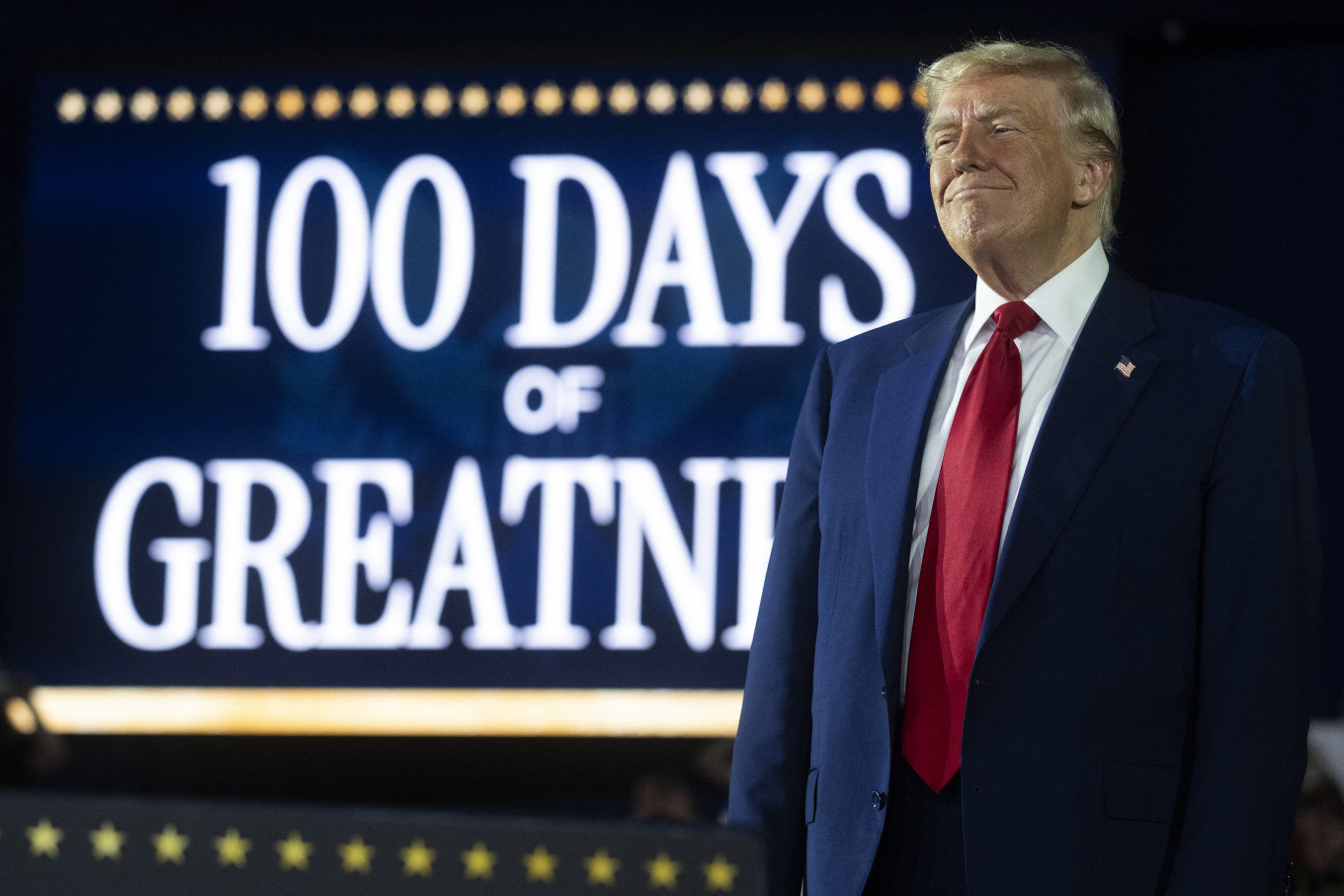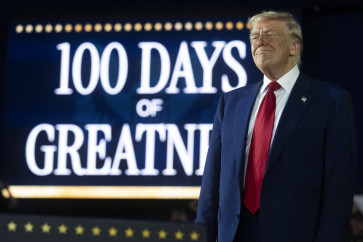Popular Reads
Top Results
Can't find what you're looking for?
View all search resultsPopular Reads
Top Results
Can't find what you're looking for?
View all search resultsOne hundred days that shook US foreign policy
Trump 2.0 is an activist, imperial presidency, both at home and abroad.
Change text size
Gift Premium Articles
to Anyone
W
e are barely 100 days into United States President Donald Trump’s second term, but much is already clear. Trump 2.0 is starkly different: More confident and surrounded by a team determined to implement a far more sweeping agenda. Those staffing the administration, primarily amplifiers more than restrainers, enablers more than guardrails, spent the past four years preparing for this moment.
Trump 2.0 is an activist, imperial presidency, both at home and abroad. He seems to be everywhere, dominating public space and private conversations alike in much of the world. The contrast with his predecessor President Joe Biden could not be more stark.
The administration’s principal policy goal thus far has been to make good on Trump’s campaign pledge to secure the US’ southern border. But import tariffs, an across-the-board 10 percent baseline levy, plus additional country-specific tariffs, reaching 145 percent in China’s case, have become the defining initiative of his presidency.
Foreign policy is also substantially changed. The US has shifted from being a steadfast supporter of Ukraine to tilting decidedly in Russia’s favor. The shift appears to be motivated by a clear dislike for Ukrainian President Volodymyr Zelensky and an embrace of Russian President Vladimir Putin for reasons unknown.
Trump, who boasted during his campaign that all he needed was a day to end the war, which he regularly blames on Biden and Zelensky, is now talking about walking away from diplomacy to end the war entirely. He is finding it difficult to make good on his campaign promise, in no small part because his pro-Russia policy fails to give Putin any incentive to compromise or Zelensky the confidence to do so. The agreement to establish a US-Ukraine Reconstruction Investment Fund should help, but, to achieve a cessation of hostilities, much more will need to be done to assist Ukraine.
Europe and the US’ other traditional allies receive no special treatment, either. This is certainly the case with tariffs, which tellingly spared Russia but severely hit Japan, South Korea and Taiwan.
Vice President J.D. Vance traveled to Munich in February to ignite a cultural clash with Europeans, while Defense Secretary Pete Hegseth openly raised doubts about the US commitment to Europe at NATO headquarters. This has spurred European preparations to support Ukraine if US assistance wanes and to achieve strategic self-sufficiency more broadly.



















